


Committed to Sustainable Cities and Human Settlements for All

In Special Consultative Status with ECOSOC
--Exclusive interview with Professor Giancarlo Dall’Ara, President,
National Association of Alberghi Diffusi (ADI), Italy
By Dr. Ralph Wahnschafft, Senior Advisor on Sustainable Development Policies
Global Forum on Human Settlements
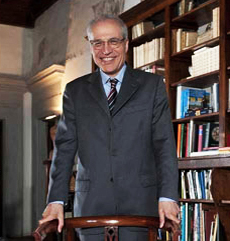
Editor's note: "Albergo
Diffuso" was born in the rural areas of Italy. This concept describes
village rehabilitation and revitalization projects, in which abandoned houses
and other buildings are refurbished in aesthetic and authentic ways at the
regional level to welcome visitors and tourists and generate income from
"soft" forms of individual "slow" tourism. There are over
250 initiatives of this type in Italy and other southern European countries.
Unlike Castelfalfi and other Resorts, these initiatives are located in villages
where a community of residents still exists, the project is local, the
philosophy is based on traditional hospitality, the managers live in the place
and even the gastronomy is local. Sometimes the management is based on some
form of cooperative, in which a group of homeowners comes together.
"Albergo diffuso" is a
unique concept of hospitality, made in Italy, different from popular ones, such
as hotels or resorts; was created to develop tourism in villages and historic
centers without changing their characteristics. It does not require any
building, just organize what is already there. It is also translated as “scattered
hotel', meaning a facility that has a central reception and restaurant
building, and a variety of physically distributed but centrally administered
and serviced holiday rooms or apartments (located within repurposed traditional
village buildings nearby).
Professor Giancarlo Dall'Ara is the President of the Italian
Albergo-Diffusi Association, of the National Association of Small Museums, and
head of Chinese Friendly Italy. He is an "old hand" in
Albergo-Diffusi, a distinguished advocate of this type of business. His
specializations also include hospitality projects for tourist destinations,
groups of private operators, museums, and tourist offices; territorial tourism
development plans; creation of networks of operators; marketing projects for
public and private operators; design of diffused hotels and other models of
diffused hospitality. After having developed an original hospitality model, he
is committed to exporting it from Japan to Albania, Georgia, Switzerland, China
... He has written several books, mostly published by Franco Angeli. He is a
major expert on the Chinese tourism market, head of the "Chinese Friendly
Italy" network, is editor of the White Paper on Chinese Tourism in Italy,
and is one of the people who have contributed most to promoting Chinese tourism
in Italy.
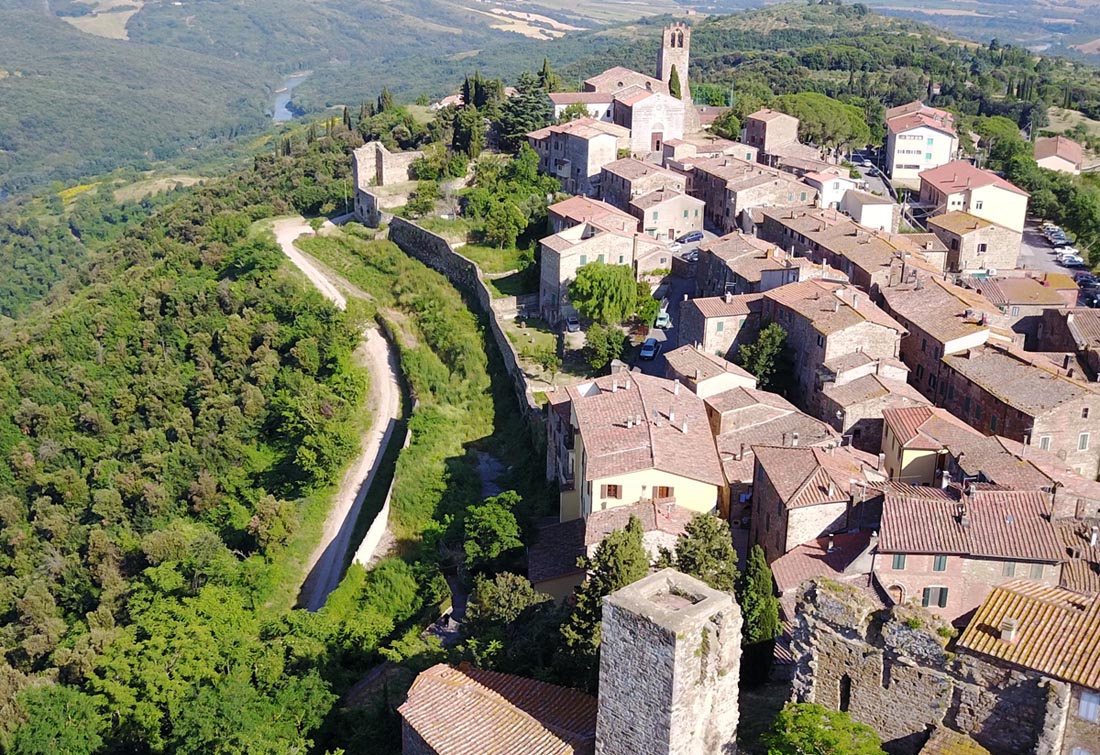
GFHS: Italy’s National Association of
AlberghiDiffusi (literally translated as ‘scattered hotels’) has won the World
Travel Market Global Award in 2010. This reflects growing global recognition of
your own work in developing the Albergo Diffuso hotel concept throughout Italy
and its success in revitalizing rural communities. What is an Albergo Diffuso?
What are its main features?
Professor
Giancarlo Dall’Ara: In many countries in Europe, as well as
elsewhere, hamlets and small villages in remote rural regions are facing great
challenges. The local rural population is aging or
emigrating, and economic prospects are in decline, in spite of the fact that
many of the locations are located in regions with great scenic beauty or
natural attractions. The concept of the Albergo Diffuso was first developed in
Italy in the 1980s. It is a new way to refurbish and reuse pre-existing local
and traditional buildings for use as hotels and tourist accommodation.
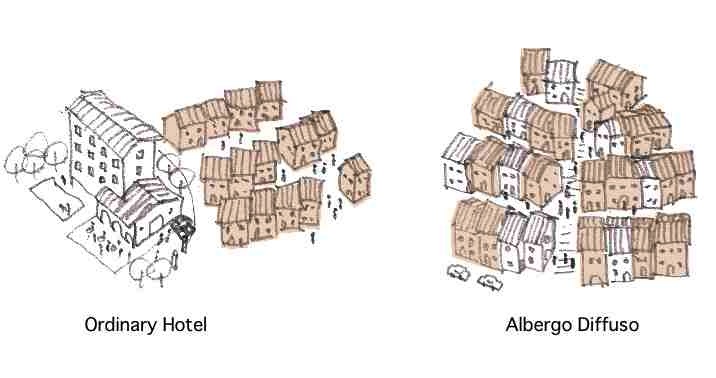
Ordinary Hotel VS Albergo Diffuso Photo by: Yasushi Watanabe
GFHS: How does the Albergo Diffuso hotel concept
contribute to more sustainable tourism?
Professor Giancarlo Dall’Ara: In
modern mass tourism, hotel chains all around the world offer standardized
facilities and services. The Albergo Diffuso concept takes an entirely
different approach. It creates and markets tourist accommodation and tourist
experiences that emphasize the uniqueness of each locality. Scattered hotel
rooms and apartments facilitate social interaction and cooperation, including
between locals and visitors. The Albergo Diffuso also creates new small
business and employment opportunities for local communities, and it advances
the conservation of built heritage and culture in rural areas and small towns.
Essentially, the Albergo Diffuso is a concept which brings out the tradition of
human hospitality, in Italy, as well as elsewhere.
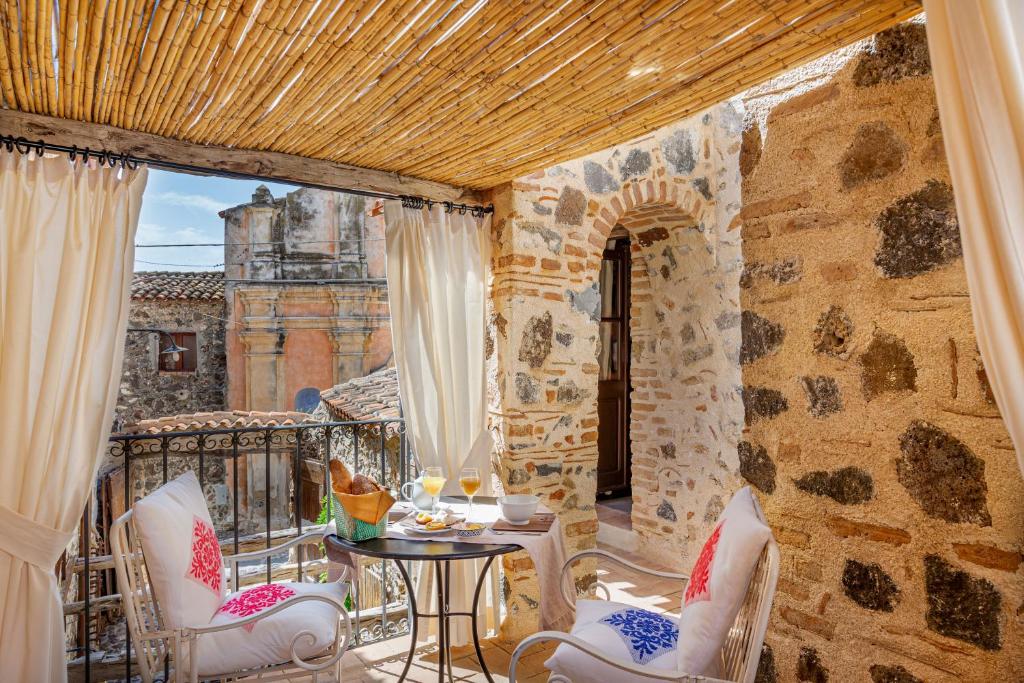
Albergo
Diffuso Mannois, Orosei
GFHS: Attracting tourist visitors to
rural areas can pose formidable challenges. What are key strategies for
marketing decentralized tourism in rural areas and AlberghiDiffusi?
Professor Giancarlo Dall’Ara: I
have given many lectures and published many articles on tourism marketing and
related strategies. In many countries, we can observe and support new emerging
trends, also called “slow tourism”. More people (re)appreciate unique touristic
experiences in rural areas. Of course,
improving local infrastructure, facilitating local transport and access, and
providing attractions and opportunities for activities are also important.
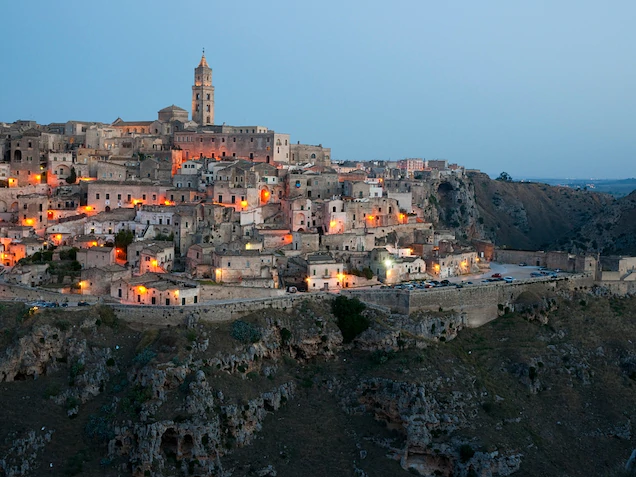
Sunrise awakens Matera, a centuries-old
town currently enjoying its own new dawn thanks to the pioneering
albergodiffusoor
dispersed hotel movement. PHOTOGRAPH BY
MASSIMO BASSANO
GFHS: What
are other important features?
Professor
Giancarlo Dall’Ara: Concepts and terms such as “guest”,
“sustainability”, “lively community”, “hamlet lifestyle”, and “hospitality”,
they all have a special meaning both in my way of thinking tourism, and in the
Albergo Diffuso model. In
the Albergo Diffuso environment, hamlet alleys are becoming the hotel hallways,
and social interaction between residents and visitors is easy and encouraged.
My request to foreign journalists is not to translate the name of “Albergo
Diffuso”, as it differs from all the other forms of hospitality, such as
B&B, hotel, holiday house, tourist resort, or agritourism.
As I wrote in the Albergo Diffuso handbook, AD is an entirely Italian adventure, representing the hospitality culture of our country and the "horizontal" lifestyle made of relationships and communities typical of Italian hamlets; while traditional hotels offer a "vertical" lifestyle, the life of “the rush culture”, characterizing big cities worldwide.
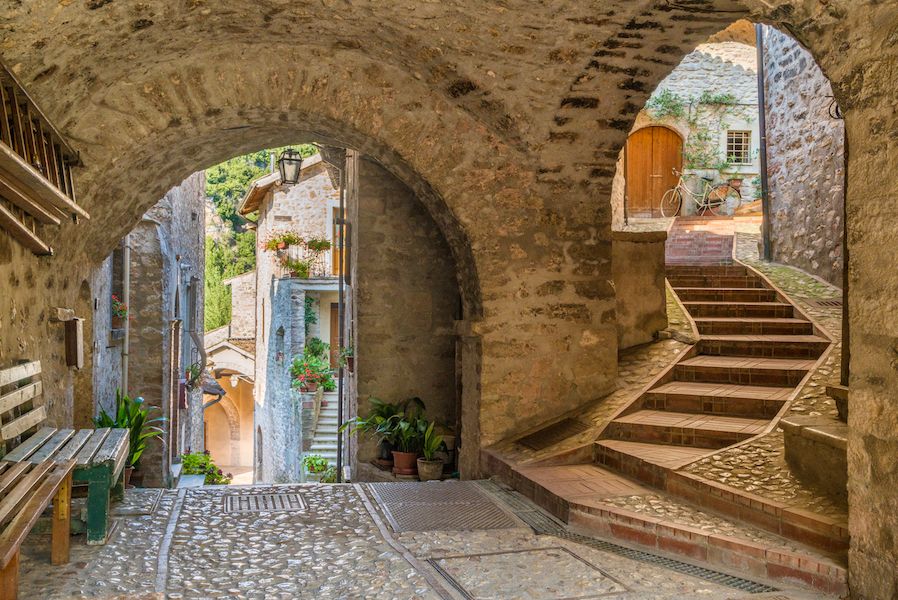
GFHS: Who can be the owners of an
Albergo Diffuso? Are there different
ownership models? What are important
guidelines for the management of an Albergo Diffuso?
Professor Giancarlo Dall’Ara:
There is no standard ownership model. In some locations, significant
investments were needed to develop a successful local scattered hotel business.
However, the Albergo Diffuso is always in private ownership, including
cooperative local business associations. Strong local leadership, municipal
support, and public-private partnerships are important preconditions for
successful local tourism development.
GFHS: Operating tourism in rural areas
may require public investments in local infrastructure such as water and energy
supply, waste water treatment, transportation, communication, and other
facilities and services. What is the role of the local municipality? What are
important sources of public funding support?
Professor Giancarlo Dall’Ara: Local initiative and leadership is indeed crucial, as is technical and
financial support. Manyyears ago, I
created the Associazione Nazionale degli Alberghi Diffusi (Alberghi Diffusi
National Association), which more recentlydevelopedinto the Associazione
Internazionale degli Alberghi Diffusi (Alberghi Diffusi International
Association). The objective is the facilitation of
local, regional, national and international sharing of experiences, and to
protect the scattered hotel model while enhancing it and its brand.
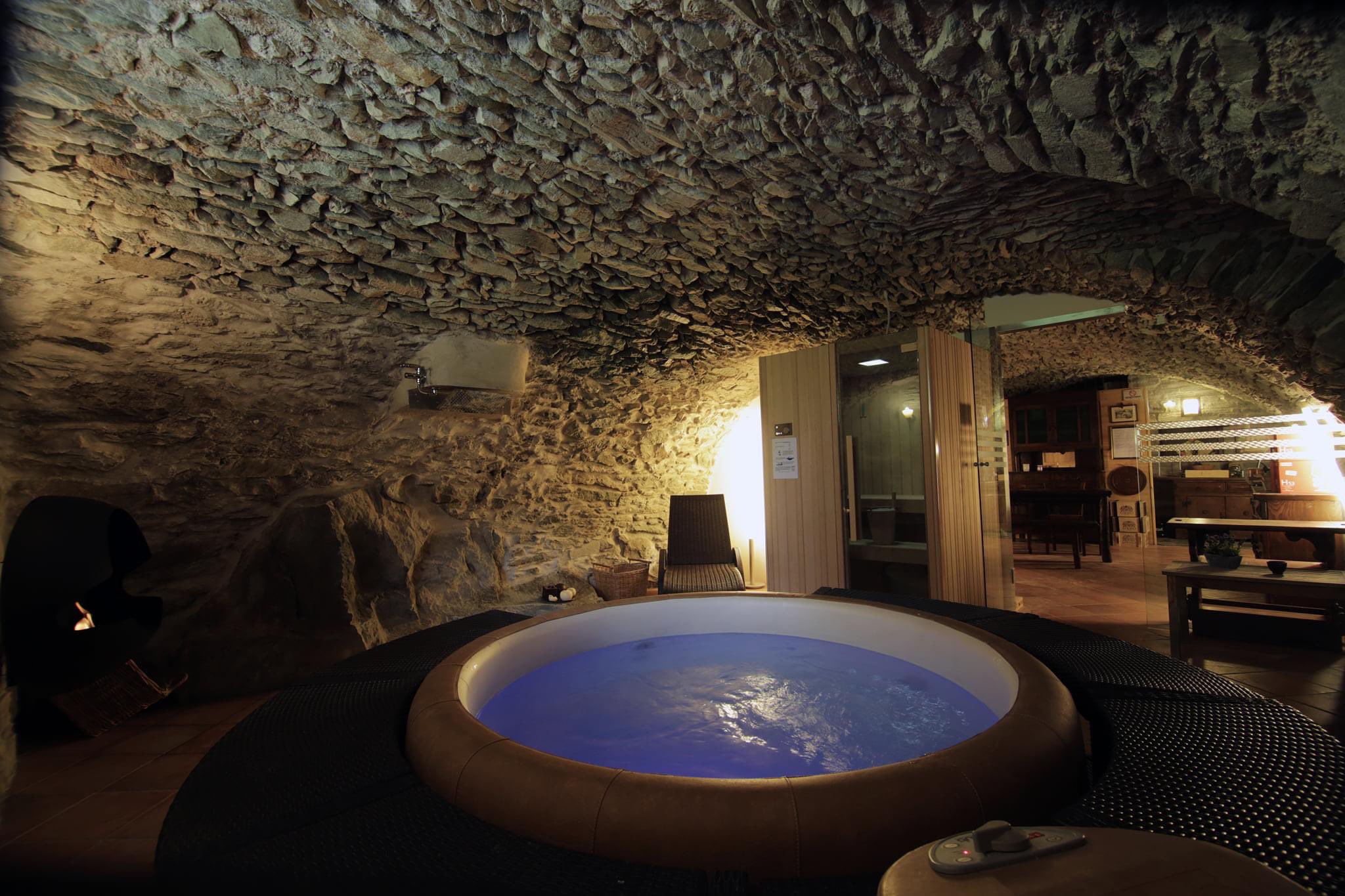
Wellness at the Locanda degli Elfi, Albergo Diffuso in Val Maira
GFHS: Many industrialized
as well as developing countries are facing the same challenges of rural to
urban migration, resulting in depressed local economies in rural areas. Are
there other countries that have adopted the AlberghiDiffusi concept and that
have benefitted from your advice?
Professor
Giancarlo Dall’Ara :
Indeed, many countries have studied and started to adopt the concept of Albergo
Diffuso.We have received requests from countries,
such as Ireland, Albania, France, Slovakia, Serbia, and San Marino. In most
cases, they were scattered hospitality networks or simple projects. Today,
there are already a growing number of “AlberghiDiffusi”-style collaborative
scattered and integrated hotels, including in Australia, Germany, Japan, the
Republic of Korea, and the United States.
|
|
|
|
|
|
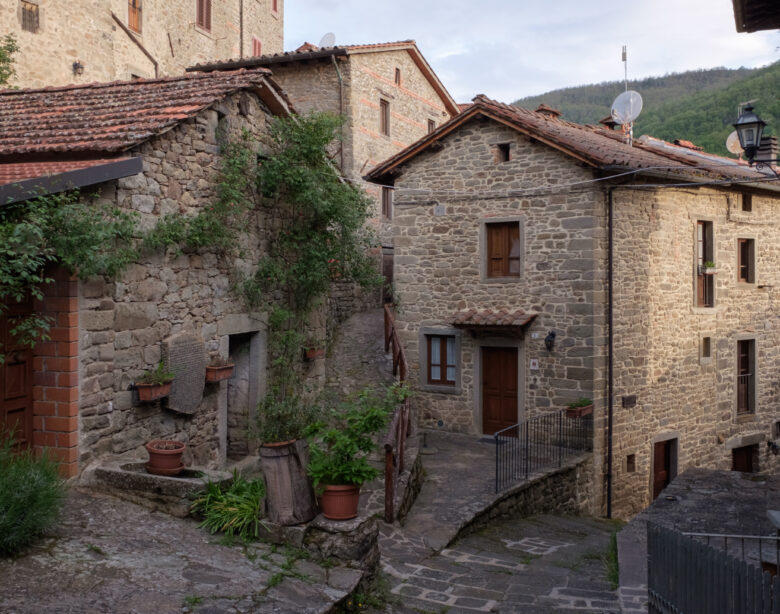
Albergo diffuso in Toscana
GFHS: The Global Forum on Human
Settlements (www.gfhsforum.org) has many partners in developing countries, including
China. Where do you see potentials for successfully replicating the
AlberghoDiffuso concept?
Professor Giancarlo Dall’Ara: In
recent years I have had various opportunities for professional communication
and interaction with interested business communities in China. I am indeed very
impressed with the rapid economic progress that has been made in many areas in
recent years. China has outstanding natural and cultural heritage, and there
are countless opportunities to further develop sustainable domestic tourism,
together with heritage conservation. I
strongly believe in the future development of Albergo Diffuso in Asia and in
China in particular.
GFHS: Thank you very much. All best wishes for continued success of your work.
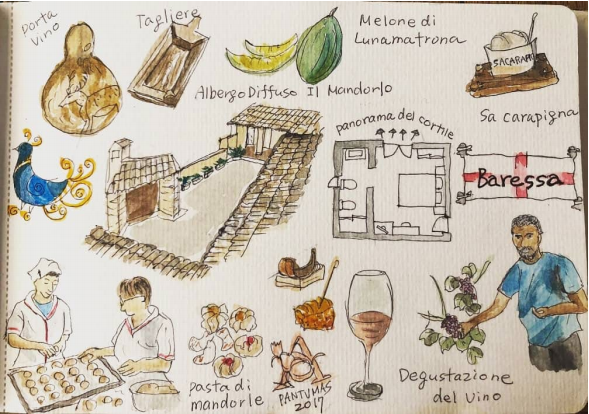
Local life at Albergo Diffuso Photo by Megumi Nakahashi
Copyright © Global Forum on Human Settlements (GFHS)
